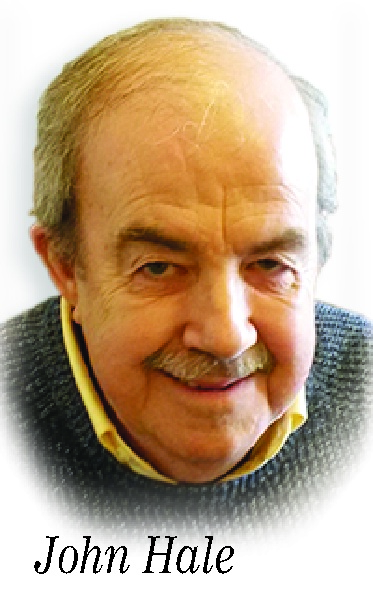There’s a hole on my FM radio dial. It’s on the right-hand side at about 106.9 where for 25 years WBACH-FM was preset to come on at the touch of a button on my bedside clock radio.
All I had to do was roll over and pop the button and out came the strains of Mozart, Beethoven, Haydn and Vivaldi. WBACH was reliable. It played mostly familiar classical music at all hours of the day or night. It was the only commercial all-classical radio station in the state of Maine.
As a bedside companion, WBACH was soothing and meditative. Its orchestral music called up mental images from long ago, from childhood and peaceful times. WBACH played gentle music, not jarring rock ‘n’ roll. I like rock ‘n’ roll very much, but I like it on my car radio when I’m cruising along in broad daylight, not from my bedside radio when I’m trying to go to sleep or I’ve just awakened in the middle of the night.
My wife, Karlene, and I liked to listen to WBACH before we went to sleep at night. It was a good time together. I would caress her back and we would listen to the likes of Strauss waltzes and Bach’s Brandenburg concertos and try to guess the composer and the name of the tunes. Sometimes we were right and sometimes we were wrong. I used to think that every Strauss waltz was “The Skaters’ Waltz”, and I didn’t know there were so many Bachs in the family who were composers besides the patriarch, Johann Sebastian Bach.
Karlene pointed out correctly that most of the programming on WBACH was recorded elsewhere, with canned announcers, but that didn’t bother me. They still played a high-quality selection of great music. Some of their marches and loud symphonies were too bombastic to listen to late at night, but then I’d just switch them off.
A few weeks ago, after the February blizzard that dropped 2 feet of snow on us, WBACH vanished from the dial. I figured its transmitter had been toppled by the high wind and snow. That’s happened before to other radio stations in Maine. But those stations always managed to get back on the air within a reasonable time. When WBACH didn’t come back on for several weeks, I began to get worried.
I asked my city editor, Susan Cover, if she knew anything about it, and she found a story that had run in the Portland Press Herald, saying that WBACH had closed up shop for good and had reopened as a country-and-western music station. The company that owned the station, Binnie Media, of New Hampshire, offered no explanation for the shutdown. But apparently they couldn’t sell enough ads to make WBACH profitable, and they calculated they could do better as a run-of-the-mill country station. This really enraged me and saddened me at the same time.
There are a lot of country stations in Maine, and I like them, but there was only one classical station, WBACH. Maine Public Radio plays classical music and opera, but only for limited times, and its signal can’t be picked up reliably inside our house. Maine Public can be heard adequately only in our car.
Thus WBACH’s monetary decision to drop classical music, which they must have figured only appealed to a small number of people, in favor of country and western, which has a large audience, left Maine listeners without access to the great and inspiring music that is our heritage.
And it’s not only orchestral music we lost. On Saturday nights, from 6 to 10 p.m., WBACH aired a wonderful program call “Classic Jazz” hosted by Arnold Olean, a friendly-sounding jazz expert who would take requests during the week to play revered jazz artists going all the way back to the 1920s. Glenn Miller, Benny Goodman, the Mills Brothers, Bing Crosby, Frank Sinatra, Joe Williams, Billie Holiday, Dave Brubeck and the rest.
Olean had a low-key but extremely warm and knowledgeable demeanor. He would spin a dozen or more artists’ pieces in a row, usually bound together by a common theme like having three or four singers doing their own interpretation of the same song, like “Summertime.” Then he’d go back and identify each artist and where they recorded their work, such as “Ramsey Lewis playing ‘The In Crowd’ at the Bohemian Caverns in Washington, D.C., in 1964.”
Losing Olean to the dollars-and-cents decision to close up shop at WBACH was another huge blow to Maine listeners.
There are a lot of changes going on right now in our state and our country. Some of them, like this one, are really bad because they cut us off from the rich and beautiful heritage where we came from. Our roots, in other words.
John Hale is a retired reporter for the Kennebec Journal, Bangor Daily News and Capital Weekly. He lives in North Monmouth.
Send questions/comments to the editors.


